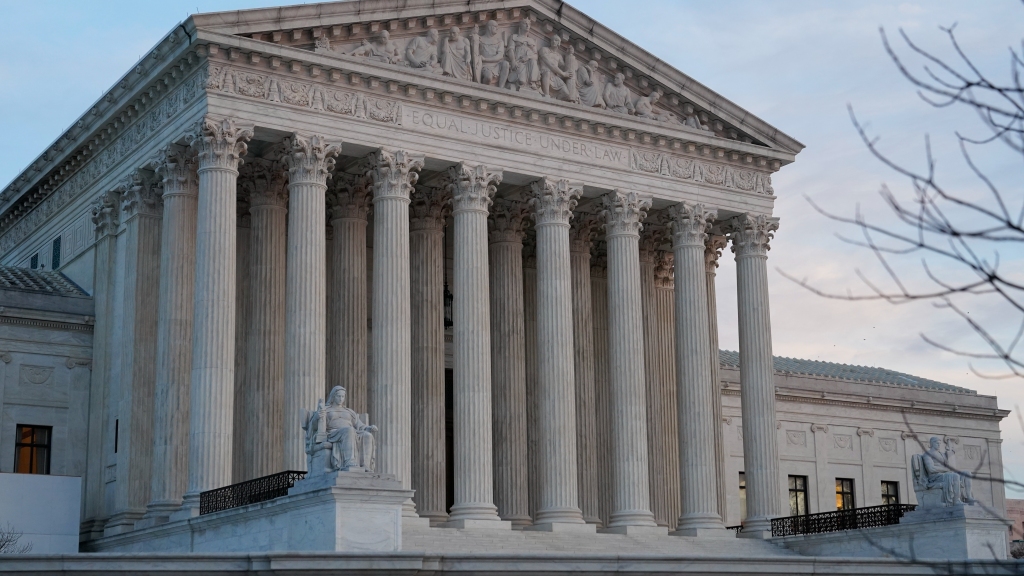Today, in what many are calling a “one-two punch,” the Supreme Court of the United States (SCOTUS) on the last day of their current term, has ruled in two high-profile cases. They struck down President Joe Biden’s plan to forgive millions of student loans, and sided with a Colorado web designer who refused to work on a website for a same-sex wedding.
Both are blows to the rights of hundreds of millions of Americans by what some observers are calling “a rogue court” with a six-three conservative majority. That mjority has begun to expand the court’s powers at the expense of the executive branch, verging into making policy, rather than interpreting law.
Some 45 million borrowers have student loan debt totaling $1.6 trillion dollars. About 53 percent of student loan borrowers owe $20,000 or less.
The student loan forgiveness program was an executive order by Biden under the Heroes Act, and while it didn’t wipe out all debt, it gave a leg up to the mostly young population and their parents, who were counting on it. Economists say this will have a significant impact on the economy.
“Unthinkable. This is not over,” wrote Biden in a Tweet. He noted that the borrowers are mostly those making less than $75,000/ year. The pause on student loan repayment due to the pandemic ends in August 2023 — and then loan payments must resume.
The United States Supreme Court ruled today in the case of 303 Creative LLC v. Elenis, and Colorado Governor Jared Polis issued the following statement related to the decision and other misguided rulings from the Court this term. Notably, Colorado’s Anti-Discrimination Act continues to be constitutional and this ruling does not change that. Nevertheless, today the U.S. Supreme Court ruled in favor of discrimination and created a pathway for wrong-minded businesses to discriminate against anyone by claiming they are selling expressive or artistic services.
This new ruling comes one day after the Supreme Court overturned decades of affirmative action precedent and potentially stifled future educational opportunities. “We are committed to building a Colorado for all where the powerful few do not control the freedoms of all Coloradans. Unfortunately, Americans have seen the Supreme Court become increasingly obsessed with taking away freedoms. In Colorado we always seek to protect freedom and end discrimination,” said Colorado Governor Jared Polis. “These rulings run counter to Colorado values and we will continue to fight against bigotry and discrimination in all their ugly forms.”
By siding with an evangelical website designer this could open a pandora’s box of threats to the rights of LGBTQ+. The court said that creative businesses can refuse to sell certain products and services if they disagree with the message that the customer wishes to convey. This, despite Colorado’s anti-discrimination law.
Representative Brianna Titone, D-Arvada and Co-Chair of the LGBTQ caucus put out the following statement:
“The decision by the Supreme Court undermines Colorado’s anti-discrimination protections, directly attacks the rights of LGBTQ Americans and allows businesses to deny services based on ‘First Amendment’ grounds to anyone due to their gender, race, religion, or who they love.
The U.S. Supreme Court has legalized discrimination and bigotry against LGBTQ people and has endangered equal protections under the law. With one decision, the Court threatens decades of progress to secure the freedoms and rights of LGBTQ Americans, and has threatened the rights of Americans to equally and fairly access public accommodations.
Across the country, over 500 anti-LGBTQ bills have been introduced that put the community in danger of harm, preventing us from freely expressing ourselves or being able to make personal health care decisions. We’ve made great progress in recent years to fight against the increasing anti-LGBTQ+ attacks. We secured the right to access gender-affirming care and abortion care, added anti-discrimination protection language to include gender identity and gender expression, and strengthened anti-discrimination protections for people in the workplace. While our new laws ensure Colorado is a safer place for members of the LGBTQ+ community to call home, we still have hills to climb to combat the rising anti-LGBTQ vitriol.
Both decisions will have far-reaching effects that probably can’t be imagined right now. Web designer Laura Smith who brought the suit called web design “a form of art” — and said she was glad to finally be able to design wedding sites.
But the decision could be said to conflate individual speech and commercial speech. Think of a person who makes hand-knit hats for sale, who could certainly be free to create whatever type of hat she wants. But when offering these hats as goods and services to the general public, she ought to be offering them to everyone on the same conditions and not be allowed to say: I’ll sell you a hand-knit hat, but you — well, I won’t sell you one.”
“Battling discrimination is like “battling the hydra,” wrote Supreme Court Justice Sonia Sotomayor in a dissenting opinion.








Recent Comments